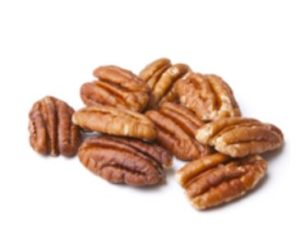
Description : β-Sitosterol (beta-sitosterol) is one of several phytosterols (plant sterols) with chemical structures similar to that of cholesterol. Sitosterols are white, waxy powders with a characteristic odor. They are hydrophobic and soluble in alcohols.
Uses : Alone and in combination with similar phytosterols, β-sitosterol reduces blood levels of cholesterol, and is sometimes used in treating hypercholesterolemia. β-Sitosterol inhibits cholesterol absorption in the intestine. When the sterol is absorbed in the intestine, it is
transported by lipoproteins and incorporated into the cellular membrane. Phytosterols and phytostanols both inhibit the uptake of dietary and biliary cholesterol, decreasing the levels of LDL and serum total cholesterol. Because the structure of β-sitosterol is very similar to cholesterol, β-sitosterol takes the place of dietary and biliary cholesterol in micelles produced in the intestinal lumen. This causes less cholesterol to be absorbed.
One small study shows a positive effect on male hair loss in combination with Saw palmetto.
In Europe, β-sitosterol plays a major role in treatment of herbal therapy of benign prostatic hypertrophy (BPH).
It is also used in Europe for the treatment of prostatic carcinoma and breast cancer, although the benefits are still being evaluated in the US.
While plant sterols are beneficial, phytosterolemia, a rare autosomal recessive genetic disorder, can occur due to over-absorption of phytosterols. Phytosterols accumulate and are over-absorbed in tissue, which causes premature coronary artery disease and tendon xanthoma.
The use of sitosterol as a chemical intermediate was for many years limited due to the lack of a chemical point of attack on the side chain that would permit its removal. Extensive efforts on the part of many laboratories eventually led to the discovery of a pseudomonas microbe that efficiently effected that transformation. Fermentation digests the entire aliphatic side chain at carbon 17 to afford a mixture of 17-keto products including dehydroepiandrosterone.
Health Benefits :
Treating High Cholesterol
Prostate Health
 | B-Sitosterol B-Sitosterol is one of several phytosterols (plant sterols) with chemical structures similar to that of cholesterol. Sitosterols are white, waxy powders with a characteristic odor. They are hydrophobic and soluble in alcohols. |
Tests | Standards | Results |
| Description | Off-white to white powder | Complies |
| Solubility | Insoluble in water & partially soluble in ethanol. Soluble in Chloroform & Hexane | |
| Loss on Drying | Not more than 3.0% | 2.31% |
| Heavy Metals | Not more than 20 ppm | Complies |
| Arsenic | Not more than 1 ppm | Complies |
| Lead | Not more than 10 ppm | < 1 ppm |
| Sulphated Ash | Not more than 1% | 0.32% |
Assay (on dry basis)
| Not less than 40% | 42.92% |
Microbiological Count
| Not more than 5000 Cfu/g | 232 Cfu/g |
